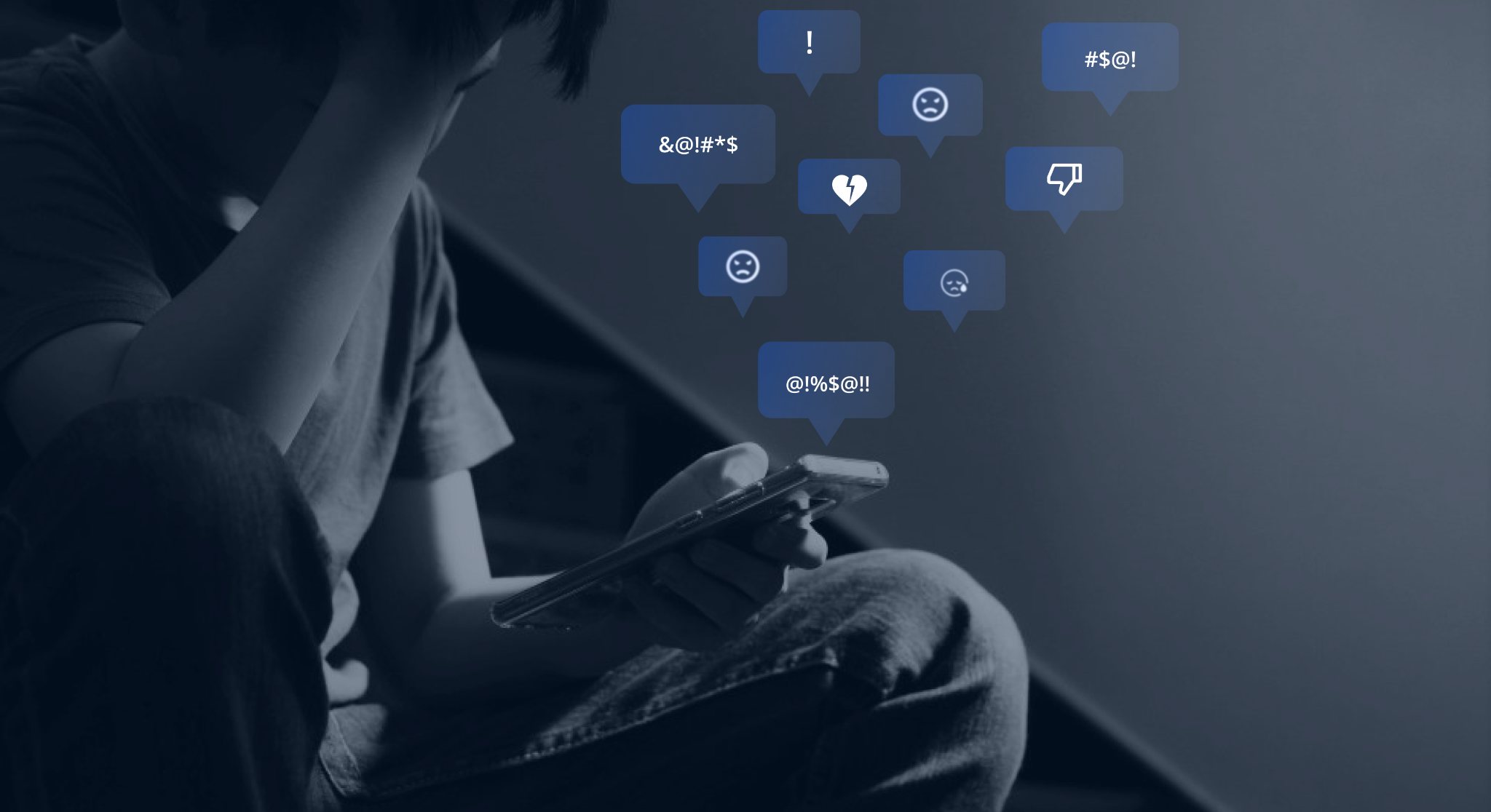When Social Media Goes too Far: How to Stop Cyberbullying?
Anxiety, depression, even thoughts of suicide now affect countless teens around the globe, largely induced due to acts of cyberbullying. While social media has connected us and made our world bigger, it has also opened the door for hurtful and harmful interactions and judgments creeping in from world over on everything from wearing glasses, to body type, sexual orientation, political views, or just appearing as an easy target.
Nearly 60% of teens report they have experienced cyberbullying. While 44% of children reported experiences with cyberbullying before the pandemic lockdown, they noted that the behavior increased even more in 2021. Along with the statistics, what’s troubling is that many parents don’t think their children have experienced bullying online or know the extent of the bullying. Both teens and parents need to be aware of what constitutes bullying and what to do about it.
What Are the Types of Cyberbullying?
 Image Credits: Freepik
Image Credits: Freepik
Cyberbullying is the use of digital technologies with an intent to offend, humiliate, threaten, harass or abuse somebody…DitchTheLabel.org
The most common activities noted under cyberbullying include name-calling (42%), spreading false rumors (32%), and physical threats (16%), but also includes posting of embarrassing photos online without your permission, purposely being excluded from group chats, or fake profiles created specifically to attack or defame you.
One of the more painful situations of being bullied online happens among peer groups. One site, Cyberbulling.org has countless posts by those who’ve experienced bullying with numerous stories including a number of reports starting with, “I thought they were my friends, but…”
As adolescents and teens interact with each other and learn about someone’s vulnerability or insecurity, they sometimes tend to use that information to make fun of their peers. A young girl may feel embarrassed by new glasses or a health issue, another may be proud of a pair of new shoes or shirt, and both are just as likely to become a target of ridicule. Those with disabilities are frequently targeted. As one poster said, “People are harsh. People are very harsh.”
Girls Are More Likely to Be Victims of Cyberbullying
 Image Credits: Freepik
Image Credits: Freepik
Often teens in dating relationships experience cyberbullying and internet defamation when they try to break off a relationship or feel intimidated by a potential partner. In such cases, they often receive explicit sexual images, are asked to provide images, or are constantly asked about where they are, who they are with, or what they are doing, which are all forms of cyberbullying.
According to the CDC, girls and LGTBQ+ adolescents in the US were more likely to be victims of cyberbullying. In 2019, (the most recent figures available) over 28% of LGBTQ teens reported being cyberbullied.
Top Sites for Cyberbullying
 Image Credits: Freepik
Image Credits: Freepik
Teens and adolescents often flock to social media platforms deemed cool and separate from sites their parents are likely to use. Talk with teens and you’ll soon discover there are multiple chat rooms, online forums, and other sites that encourage users to post comments making fun of others.
With a billion or more users online, Instagram, Facebook, and Snapchat are popular sites where bullying is most likely to occur. Hacking into someone’s profile is another gateway for a bully to post damaging content or alter the victim’s information. Practicing cybersecurity in this case becomes an important component to protect the victim against unauthorized access to their data by the cyberbully.
Online gaming communities are also rife with both victims and perpetrators of cyberbullying. Many action games thrive on trash talk and “flaming” which easily escalates to more serious and harmful harassment.
Teams of gamers can be spread across the globe, or it can be a group that attends the same school. In both cases, gamers were more likely than non-gamers to be victims of bullying both online and at school.

Are you or someone you know
a victim of Cyberbullying?
If you’ve been a victim of cyberbullying, know that you are not alone. Blue Ocean Global Technology's cyber investigation experts will help you determine viable course of action and resources to help regain your confidence. Email us today to discuss your cyberbullying experience.
Emotional, Mental, and Physical Effects of Cyberbullying
The children’s rhyme, “Sticks and stones may break my bones, but words will never harm me,” is irrelevant when it comes to the pain cyberbullying can cause. More than hurting feelings, it can also intensify and parlay into poor academic performance of the victim, their dropping out of extracurricular activities, declining grades, weight loss or gain, depression, anger, diminished self-esteem, difficulty sleeping, and even thoughts of suicide or attempted suicide in extreme cases.
Parent’s Role in Combating Cyberbullying
 Image Credits: Freepik
Image Credits: Freepik
Many teens and adolescents say they don’t tell their parents about being bullied mainly because they fear they will lose their device or suddenly have their time online restricted. Others are afraid they will be punished for sharing photos or complying with an online bully’s prompts.
Many are also afraid the bully will make things worse if they find out they’ve been reported.
Even though younger users believe that bullying isn’t appropriate behavior, some also admit to taking part in bullying someone else. High visibility personalities and celebrities are not exempt from this evil either, many of them from Adele to Miss South Africa, Shudufhadzo Musida, have experienced verbal attacks ranging from body shaming to death threats.
Parents can be on the lookout for changes in their child’s behavior, whether it’s suddenly losing interest in being online, withdrawing from activities, or the physical changes, in weight, appetite, sleep or activity level. They can then take a gentle approach to find out if something is amiss.
How to Stop a Cyberbully?
- Block them
- Report profiles on social media
- Avoid passing on tweets/posts/or messages that are bullying
- Don’t retaliate with negative posts
- Take a break from social media
- Talk to someone, a parent, a school counselor
If you’ve been a victim of cyberbullying, know that you are not alone and you don’t have to face this problem on your own. It’s normal to feel embarrassed, but don’t let it stop you from reaching out for help or reporting it. If you don’t have a trusted teacher, counselor, or can’t talk to your parents, there are online sites such as Cyberbullying.org and DitchTheLabel.org that have numerous resources, online chat counselors, and forums where you can share your story and learn that others have experiences like yours.
It’s also important to stay connected with family and friends, stay active, get enough rest, and eat healthy foods. Write about your feelings in a journal, make a list of all the things you like about yourself, what you are grateful for, or meditate. Find offline activities that make you happy, whether it’s hiking, learning a new instrument, or volunteering.
The most important thing is to get help instead of trying to face this alone.
Some resources to fight against cyberbullying:
Cyber Crimes Are a Delicate Subject That Requires Utmost Care and Attention.
Seek Our Professional Guidance Today and Avoid Unnecessary Risks.












